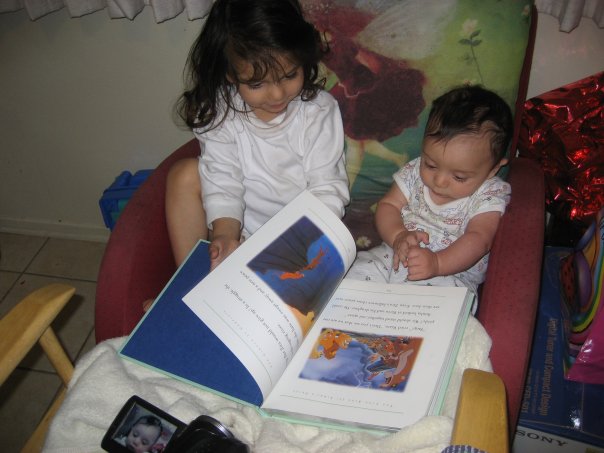 Do Vaccines Impair Immune Function?
Do Vaccines Impair Immune Function?Healthy immune system gives us the ability to resist or subdue infection, allergy, chronic illness and degenerative disease. As we mature and age, the immune foundation we develop during our first years of life will remain vitally important.
At birth, certain immune defense mechanisms are already in place. Substances secreted in the skin and mucous membranes serve as the first line of defense, and white blood cells that destroy disease agents by engulfing them (phagocytosis) and other functions are a second line of defense. Although newborns aren’t able to produce all the antibodies and other immune defenses they will need, they are already capable of recognizing more than a million different identifying characteristics of foreign substances, or antigens. Infants who are breast-fed receive maternal antibodies and immune-cell stimulating substances from breast milk. For the first few months of life, these maternal antibodies can provide passive immunity against many specific infections.
During the first year of life, babies develop their own antibodies. Other immune defenses also continue to develop as body cells mature and as the child is exposed to numerous bacteria, viruses and fungi in the environment, which stimulate long-term or even lifelong immune-cell memory. The subsequent resistance to a specific antigen is called natural immunity. By contrast, artificial immunity–as conferred by vaccination against diseases such as polio and pertussis–is quite different.
Vaccinated immunity relies only on antibody response to inoculation with specific antigen strains. The hope is that the immune system will be sufficiently stimulated and produce enough antibodies to create immunity to the vaccine antigen. But there are intrinsic problems with vaccination theory. The immune system is not a one-truck fire station: Antibodies aren’t the only way to snuff out invading disease agents. There are many, many immune defense mechanisms (including biological response modifiers such as interferon, produced by white blood cells) and different biochemical messengers (including hormones and neurotransmitters). All are involved in maintaining strong natural immunity.
A larger problem with vaccination, however, is that it appears to have an adverse effect on immune function. In the case of childhood vaccination, it is thought that current vaccines cause serious defects in immune development and function. While the assumption has always been that we can have both vaccinated immunity and a healthy immune system, this is apparently untrue. When an immune system, especially a developing one, is bombarded with “inactivated” antigens suspended in solutions of toxic additives, contaminants and solvents, immune function can become impaired. while we might be at reduced risk of contracting the formerly crippling and lethal diseases that we were inoculated against, it’s the vaccines themselves that are now the cripplers.
Many health professionals are speaking out about their concern that childhood vaccines harm the developing immune system. At the same time, questions are being raised about the skyrocketing rate of chronic illness and disease among children. It doesn’t seem likely that processed foods, environmental toxins, psychological stress and overused antibiotic drugs are the only culprits. Do these factors explain, for example, the appalling rise in asthma and diabetes in children?
Randall Neustaedter, O.M.D., L.Ac., CCH, who has practiced homeopathy and traditional Chinese medicine for more than 20 years, and in 1996 wrote The Vaccine Guide: Making an Informed Choice, believes that vaccines can disable the immune system. Observing that illnesses tend to begin when babies are three or four months old–the point at which maternal antibodies are beginning to wear out, leaving babies susceptible to environmental microbes–Dr. Neustaedter asks, “Why aren’t these babies developing their own antibodies in response to the initial viral or bacterial infections?
“What prevents their immune systems from mounting a vigorous response? And why does this pattern of illness with recurrent ear infections occur so often now, a pattern that was rare prior to 30 years ago? What is weakening the immune function of today’s infants and young children?”
Dr. Neustaedter believes that researchers need to spend more time investigating immune system reactions to vaccines. Two research models have been used to discover possible adverse effects on the immune system. One is designed to study illness patterns preceding and following vaccination. The other looks at whether vaccines have any negative effects on white blood cells, the body’s primary immune defense cells. Dr. Neustaedter says that investigations thus far have produced the same conclusion: Vaccines can trigger immune suppression.
A 1996 study in the New England Journal of Medicine revealed that tetanus vaccine disables the immune system in HIV patients. Tetanus vaccination produced a drop in immune T cells, a classic marker of immune deficiency, in 10 of 13 patients, with a rise in viral replication.
Dr. Neustaedter notes that the immune-destructive effect of vaccines can persist over a long period of time, although we don’t yet know how long. In one study, published in the Journal of Infectious Diseases, it was shown that the measles vaccine has a long-term depressive effect on interferon production. The vaccination of one-year-olds with measles vaccine caused a precipitous drop in their level of alpha-interferon production. This decline was still persisting one year following vaccination, when the study was terminated.
Researchers are looking at the role vaccines play in childhood asthma and allergy. Results of the Christchurch Health and Development Study in New Zealand, published in 1997 in Epidemiology, point to higher rates of asthma and allergy episodes among vaccinated children. And in a study using the Mumps-Measles-Rubella (MMR) vaccine at the Johns Hopkins University School of Medicine, researchers investigated the association between childhood asthma and live-virus vaccines, concluding that “universal childhood vaccination using live viral strains may be contributory to the rise in IgE [antibody]-mediated disorders.”
Other researchers are saying that vaccines are disabling our bodies’ ability to react normally to disease, thereby creating autoimmune conditions. In 1994, a committee of investigators at the Institutes of Medicine directly associated vaccines with the rising occurrence of autoimmune diseases, such as multiple sclerosis, that attack and destroy the myelin sheaths (tubular insulation) of nerves. They said it’s “plausible that injection of an inactivated virus, bacterium, or live attenuated virus might induce in the susceptible host an autoimmune response by deregulation of the immune response, by nonspecific activation of the T cells directed against myelin proteins, or by autoimmunity triggered by sequence similarities of proteins in the vaccine to host proteins such as those of myelin.”
A study published in the New Zealand Medical Journal in 1996 revealed that an epidemic of diabetes followed a massive campaign to vaccinate children against hepatitis B. The study showed a 60% increase in childhood insulin-dependent diabetes, an autoimmune disease, occurring in the years following the 1989—1991 vaccination program of children aged 6 to 16. Other studies have shown that widespread use of the Haemophilus meningitis vaccine has resulted in diabetes epidemics. Diabetes has also been frequently observed as a consequence of the mumps vaccine: Three European studies reported 22 cases of diabetes that began within 30 days of mumps vaccination.
These are just a very few studies amidst the growing proof, says Dr. Neustaedter, that tampering with the immune system can cause devastating disease.
Contact:
Dr. Neustaedter, O.M.D., L.Ac., Classical Medicine Center, 1779 Woodside Road, Suite 201C, Redwood City, CA 94061. Tel: 650-299-9170; website: www.cure-guide.com.


Leave a Reply